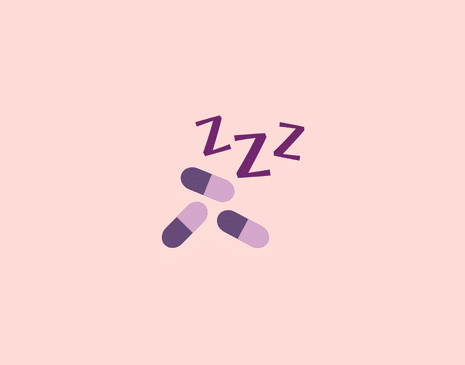We’ve said it once and we’ll remind you again; our vulvas are self-cleaning machines. When it comes to our nether-nether-lands, our vulvas independently maintain a balanced microbiome down there. On the odd occasion, interferences can come into play that disrupt the natural microbiome of our lady parts. This may cause a slight discomfort that you’ll easily let slide for a few days until it passes. Or, is may cause a painful, uncomfortable and somewhat embarrassing series of symptoms that could lead to something much more serious. Here are the common vulva signs and symptoms to look out for.
Vaginal Discharge
Our vulvas and vaginas have a totally unique microbiome that keeps our southern wonderlands functioning optimally. Part of that process is the removal of excess bacteria in the form of discharge. It’s completely normal and we bet most women experience discharge almost daily. It’s almost never a symptom to be concerned about, unless it becomes thick, white and the consistency of cottage cheese. If your discharge takes on this alter-ego state, it could mean that you have a yeast infection. Another symptom to look for is discharge with a strong, unpleasant, fishy odour. This could be a symptom of bacterial vaginosis (BV).
Lumps and bumps
Vaginal lumps and bumps can be the precursor to a major freak-out, we get it! Whatever you do, do not ask Dr Google only to be directed to the worst-case scenario i.e. a likely death. A lump on your labia could be an ingrown hair, a pimple, or a shaving cut. Bumps on your lady parts could also be genital warts, herpes lesions, or something more serious. See a doctor. A real human doctor.
Change in odour
We hope by this stage of your life you’re across the healthy fragrance of your hoo-ha, so we have two takeaways for you when it comes to mysterious vaginal odour; fishy or yeasty. If your nether region begins to smell like the local fish market, it could indicate bacterial vaginosis or trichomoniasis. A yeasty smelling vagina on par with the local craft brewery could indicate, you guessed it, a yeast infection. Stay vigilant, ladies, and if your vaginal odour is just plain rotten, consider whether a tampon has overstayed its welcome (this happens more often than you’d think).
Painful periods
We’re all familiar with period pain. The cramps, migraines, nausea, and breast soreness – ouch! But, when period pain goes beyond your norm and steps up the severity notch, it’s time to check in with your GP. Period pain can be a symptom of endometriosis or uterine fibroids.
Abnormal bleeding
Spotting is a completely normal part of womanhood (don’t believe us? look here). The situation turns when you experience bleeding from your vagina when you aren’t on your period, or the spotting is more excessive than normal. Abnormal vaginal bleeding could be a sign of ovarian cysts, STIs, pregnancy issues, and cancer.
Frequent urination
If you find yourself ducking off to the loo more times in one day than you can count, you could be experiencing a urinary tract infection (UTI). UTIs happen when bacteria enter the bladder through the urethra, and they can be an absolute nightmare. Make an appointment with your doctor, pronto.
Painful sex
If sex was meant to be painful, our population would be dwindling, maybe even non-existent. Sex is not meant to hurt, ladies. So, if you’re experiencing discomfort during the deed, this could be your vagina’s way of alerting you to a larger problem, like vaginal and ovarian cysts or uterine fibroids that will require surgical removal.
Itching
When you have a downstairs itch that you’ve been dying to scratch for more than a day or two, this could be a symptom of a yeast infection, herpes outbreak, chronic skin condition, pubic lice or lichen sclerosis (a common skin condition that causes white, patchy areas of skin surrounding the genital area). Avoid a self-diagnosis and check-in with your doctor for your best recovery options.







